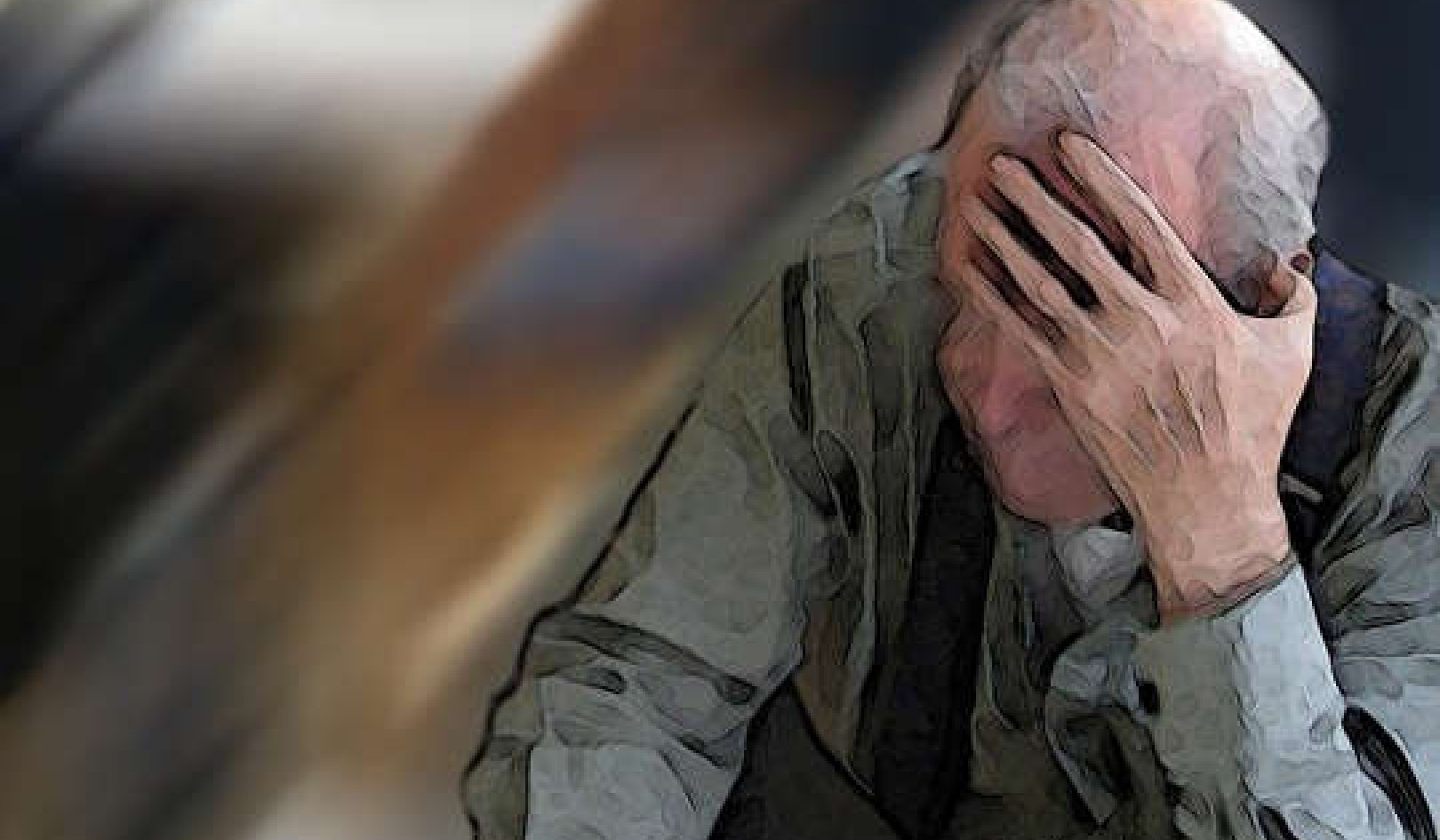
When I asked the question -- How does it feel to be sixty? -- of my teacher at the Gurdjieff Foundation, she took her time to ponder it before answering. Her admiring students were making merry, enjoying the occasion of her landmark birthday in her home, where we gathered for the evening's festivities. The atmosphere was a vivid contrast to our weekly meetings at the Foundation, where a group of us sat, almost primly in a circle, directing our questions and observations to her when we had the courage to speak. She was extraordinarily intelligent and learned, no small requirement to guide our studies of the teachings of the Eastern mystic G. Gurdjieff and his followers.
The fun side of our teacher was not even hinted at during our weekly meetings, so at this celebration, I, who had no social impediments, experienced an unaccustomed shyness and awkwardness in her presence. The party was a rare switch of ambiance, a 180-degree turn from our usual solemn discussions.
The punch had been pleasantly spiked, helping to ease the anxieties of some of us awestruck students; and music, conversation, and funny stories helped us cross the line to informality. Those students not privy to a social relationship with her were confused and delighted to see our erudite teacher thoroughly enjoying her birthday party like any ordinary person.
How Does It Feel To Be Sixty?
Wanting to appear lighthearted yet thoughtful, I asked her how it felt to be sixty -- a number quite remote from my own reality at the time. As she prepared to answer, the other students, ever eager to sip from her fount of wisdom, gathered 'round. We had learned that she listened in a special, deeply thoughtful way, and responded accordingly. At last she uttered one succinct word: "Relieved."
I blinked.
"I am relieved to be sixty."
She went on, "You know, when we are very young, we are in such a hurry to be grown up. We are filled with anxiety and impatience to go hither and yon, to do this and that, to make money, to succeed, and so forth."
Hearing her speak, in her mildly pontifical way, the merrymakers quieted and rallied to catch every nugget of her wisdom.
From Education to Ambition
"In our teens and twenties, we are absorbed in educating ourselves and plotting our futures; then we are busy working toward realizing our dreams and ambitions, which takes years of hard work. We want things and are driven to strive, to accumulate, to succeed. We become involved in business or raising families or in trying to save the world in some way. It goes on for a very long time."
She paused, allowing us to inscribe her words on our mental slates, to absorb her overview of life. In the quiet, I reflected on my own ambitions to do better, to travel and see more of the world, as she had, to leap the barriers that limitations of money and education had put in my path. She had done so much and knew so much and, being still vital, would do so much more.
"But why 'relieved'?" I asked.
"Because at sixty it all falls away. I don't have to do or go or prove anything else. The need for all that striving stops -- falls away." She shrugged as if to demonstrate her point.
Although puzzled, I nodded. I tacitly understood that she was imparting something profound, but a small, rebellious member of my collective personality resisted her answer. Gurdjieff himself had said that everything we hear or read is only theory -- until it becomes our own experience. I would have to wait.
Will Reaching Sixty Change Me?
Years later, when I turned sixty, I don't remember being "relieved." Given our different scenarios, there had to be different answers from the one given by my teacher years before. I had not married or borne children; I did not have a comfortable financial status I could take for granted; I did not have formal higher education to provide me with a career ladder to climb. Yet I had managed to make a modest, decent living and create an interesting life. If one's activities and friends are useful barometers, I could be considered a mild success.
At sixty, I was working at my last full-time job and enjoying my independence. I was far from letting go of life or feeling relieved. With friends and family all over the globe who wanted visiting, I did a bit of traveling, not to every exotic spot on the planet, but to enough places to make for several good chapters in my memory book. I held fast to my dream of being published. Having given myself enough goals and wanting more from life than most people I know, I didn't see any "relief" in sight.
Reaching sixty did not change me, nor did I allow the number to sentence me to being an old woman or alter the direction or pace of my life. The subject of age is a private matter, to be revealed when necessary for something official or for the fun of it, but otherwise, at my own discretion. The man I worked for did not know for nine years that I was twelve years his senior. When he found out, he remained discreet. Exercising great wisdom, he did not treat me any differently -- well, perhaps with a tad more respect and a touch of awe. My job was not in jeopardy as far as I could tell.
On the odd occasion when asked my age, I invite the curious to guess. My standard answer to any number offered has usually been "That's close enough." It fills me with glee when the mark is missed by a mile, or even a yard. Most of the "guessers" shave as much as fifteen years off my actual number. About that, I could admit to being "relieved," but "pleased" is the better word!
One's Basic Nature Endures
After passing sixty, it is inevitable to think about certain things differently, but one's basic nature endures. Injustice anywhere in the world and laxity in high places still stir my passions and make me reach for the boxing gloves and my sword in the shape of a pen. The fury I feel when the vulnerables of the world (the very young and the very old) are abused or left defenseless turns my vision scarlet. Even though the larger issues -- which surely cannot be cured by a modest donation check from me -- often discourage and overwhelm me, I do what I can.
At sixty, I did begin to let certain things go. Great passions require great energy; life on the battlements calls for discernment about which enemies to take on. Although relinquishing a little independence and accepting help, when offered, is self-preserving and not necessarily weak, such changes take getting used to. In It's Better to Be over the Hill than under It, Eda LeShan writes that she had been shocked to realize that people who talked about old people were talking about her. Once past the jolt of reality, however, one can claim the benefits, and the triumph of getting there.
Perks that accrue to seniors are decidedly satisfying and to be relished: half fares on public transit; discounts dispensed by airlines, hotels, and other establishments; lower-priced movie tickets: all provide a comforting sense of victory (and a touch of entitlement) to the mature citizen. Whatever the rewards and privileges, I claim them all. And arriving at a certain age allows one to be "feisty." Another plus. Being thought eccentric has been one of my aspirations; I hope I am showing signs of it.
Losing Touch With the Younger Generation
One risk, however, is to lose contact with the younger generation. To my great relief and joy, the companionship of younger people is still one of life's gifts to me. I am surprised and flattered when they ask my advice or opinion. The generation gap disappears when fused by mutual respect. Never mind what I can teach the young; I am interested in what they can teach me. This point of view was hatched from one of my mother's many wise utterances: "One could live to be a hundred and still die a fool."
Another was brought to me by a long-forgotten friend from an ashram in India: "Every man is my teacher." We can even learn from those whose very ignorance shows us how we would wish not to be. The guru did not say that every old man is my teacher -- just every man (and I assume every woman). I would further amend it to include every young person, and even every child, as significant contributors to my ongoing education.
Life is indeed a banquet and I have not gone hungry yet. It keeps me busy with the mundane and surprises me with the unexpected; my interest and attention are regularly captured by invitations, celebrations, greetings, and farewells. I sip at the fountain and nibble at the feast, even as I see others starving themselves. I am baffled by people who are bored or claim they have nothing to do; I have little patience for their complaints, especially those in good physical health and with an abundance of resources.
My mother observed that if everybody formed a circle and threw their troubles into the middle, after looking around at some of the others, they would gladly snatch their own back and say no more.
One of my closest friends is immobilized by polio and other physical problems, yet runs a household from a hospital bed. Her room holds two oxygen tanks, a respirator, and a suctioning machine; a tracheotomy tube in her throat helps her breathe. Her speech was once cut off for three months, yet she managed to communicate with friends all over the world; she writes wonderful notes and letters and heartwarming essays that celebrate her happy childhood and her family. Her paintings, collages, photographs, trinkets, and loving gifts decorate every wall and bookshelf, she gives dimension to the words life and spirit, and continues to raise my consciousness about what matters and what doesn't.
What Am I Supposed to Learn From This?
What I am relieved about is that I am still alive; in good health; and very much interested in life's challenges, rewards, and surprises. To ask, "What am I supposed to learn from this?" instead of, "Why me?" is to die less a fool.
The Now is where it is and where I am. It is written somewhere that yesterday is memory, tomorrow is imagination, and today is a gift, which is why it is called the present. Oh yes, it is good to have memories and it is fun to plan, but to have this moment at any age -- is to have it all.
At seventy-seven, to be sure, some things have fallen away, but to believe that "the best is yet to come" is, well, yes, a relief.
Reprinted with permission of the publisher,
Beyond Words Publishing. ©2002.
http://www.beyondword.com
Article Source
Midlife Clarity: Epiphanies From Grown-Up Girls
edited by Cynthia Black & Laura Carlsmith.
A woman’s wisdom is one of the Earth’s greatest natural resources. With a perspective that only a certain number of years on Earth can bring, the thirty-two women in Midlife Clarity show that midlife can be a release of our true self, a chance to be free of others’ expectations, and a time to inventory our blessings.
Info/Order this book. Also available as a Kindle..
About the Author
Billie Biederman (1924-2018) attributed her varied interests, some of her passions, and her network of eclectic friends to her Gemini nature, which drew her to the young, the old, the spiritual, the creative, the unusual, and the ordinary. She enjoyed books, films, theater, and long telephone visits; and loved to read and write. She graduated from Seward Park High School, where she later served on the board of its alumni association. She laid claim to a loaded computer of work in progress and intended to spend the rest of her life completing as many as she could manage. Visit her on Facebook at https://www.facebook.com/billie.biederman
Book by Billie: Hello Mama, Goodbye
Video: Billie Biederman’s Memorial Service:
{vembed Y=mNHlT2_jcyU}



























